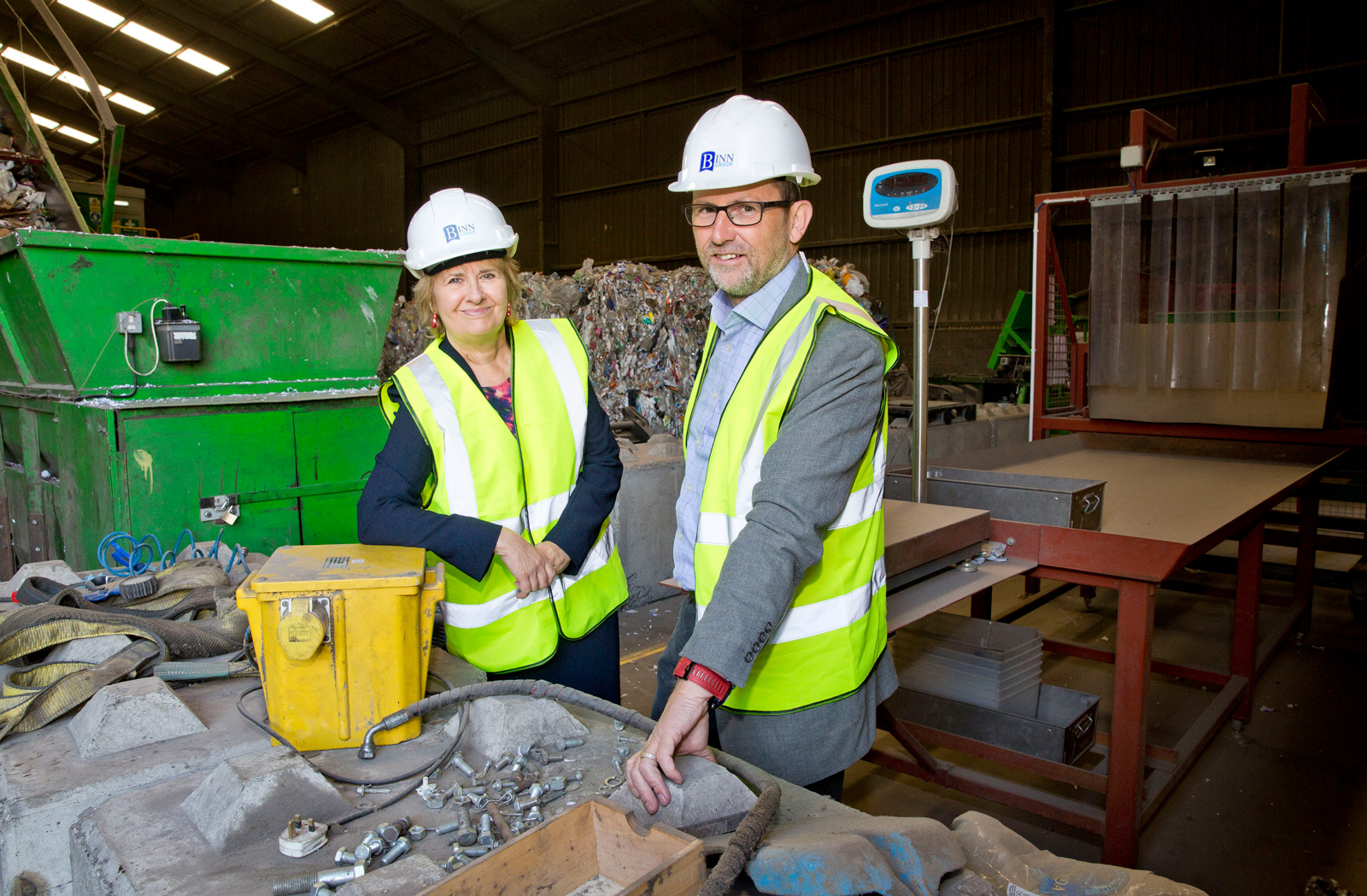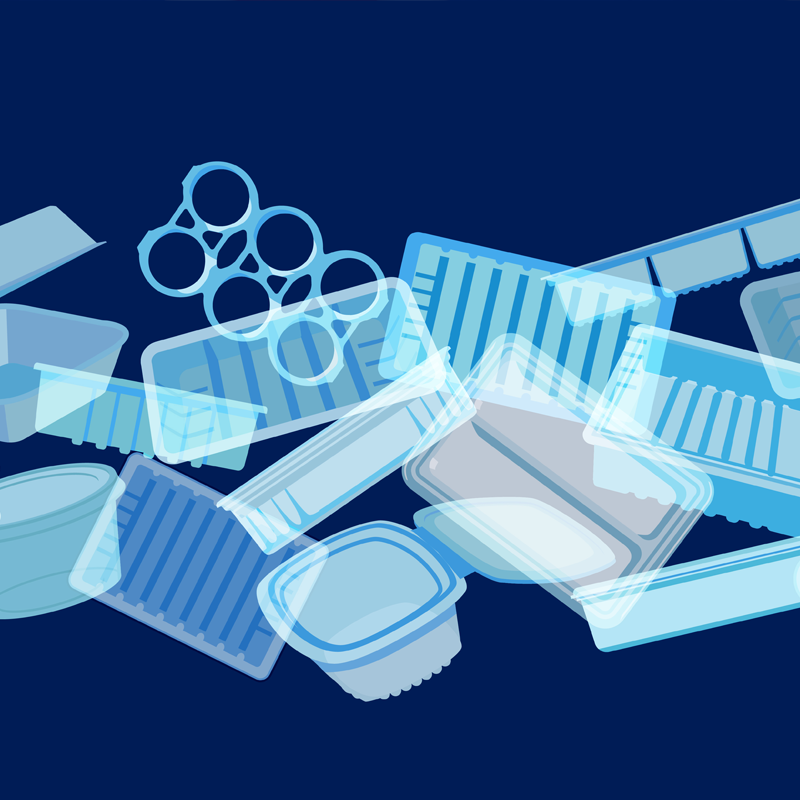Project Beacon
Project Beacon is lighting the way to a circular world of complete plastics recycling thanks to new technologies and an innovative integrative approach.
There’s no one alive today who can remember Leo Baekeland unveiling the first fully synthetic plastic, Bakelite. But we’re surrounded by the consequences of his work. Bakelite was a pioneering material that used nothing organic, was heat resistant and could be moulded into thousands of shapes. It heralded the era of modern synthetic plastics that are now everywhere in our lives – as toys, sticky tape, vacuum cleaners, plane and car interiors, chopping boards, the ubiquitous food packaging and a whole lot more.
“Plastic is a fantastically versatile and durable material, used every day, everywhere in our lives. It makes healthcare safer, travel lighter, is used widely in construction and protects our food in transit and extends shelf life. The problem is that we have not been acting responsibly in our management of plastic at the end of its life,” says John Ferguson, director of Perthshire-based EcoideaM Ltd and founder of Pi Polymer Recycling Ltd.
Indeed, plastics would be mostly a good news story if we hadn’t let them get so out of control. The Ellen McArthur Foundation reports that plastics production has surged over the past 50 years, from 15 million tonnes in 1964 to 311 million tonnes in 2014, and it’s expected to double again over the next 20 years. Packaging has become the biggest application of plastics but globally only 14 per cent of plastic packaging is collected for recycling. And jaw-dropping 8 million tonnes of plastic is seeping into our oceans every year.
Enter Project Beacon, a big solution to a big problem which combines existing and innovative mechanical and chemical recycling to create a world-first Advanced Plastics Reprocessing facility at Binn Eco Park, Perthshire. Beacon has been supported by Zero Waste Scotland, the Circular Economy Investment Fund (backed by Scottish Government and European Regional Development Funding) has just awarded funding of £1.7million in Perthshire. By locating state-of-the-art recycling technologies together, significantly more plastic is kept in the economy and diverted from landfill and incineration, contributing towards Scotland’s ambitious recycling targets.
Ferguson has done something that’s smart and almost blindingly obvious. Along with Zero Waste Scotland’s Project Manager Tim Baldwin, he has brought different businesses together to build something entirely new. Each business – Ferguson’s PI-Polymer Recycling along with Recycling Technologies Ltd and Impact Recycling Ltd – uses new unique cutting-edge plastic recycling technologies. Their co-location enables the development of an integrated system with the power to suck all types of plastics out of the waste environment.
One of the big barriers to recycling progress is that people are confused about what they can recycle or not. Project Beacon will demonstrate a system that enables householders to recycle all household plastics at the kerbside.
“We’re on a mission to have no plastics left behind,” says Ferguson. “In the first phase, we’ll be able to take any large rigid plastics including broken toys, crates, plastic pipe, garden furniture, drums and so on. In the second phase, we’ll be accepting all types of plastics collected at the kerbside. Any that can't be sorted will become chemical feedstock for new products. No one is doing this at the moment unless they’re incinerating or landfilling plastics. It could be a globally disruptive model.”
Thinking different
The system uses new state-of-the-art separation systems to support mechanical recycling but fuses this with a game-changing chemical feedstock recycling process. This includes a patented process based on thermal cracking, which recycles end-of-life plastic waste that typically cannot be recycled using mechanical methods – for example, mixed, laminated, black, film and even contaminated plastic waste. This new process produces a range of chemical constituents that can be used to reform new virgin plastics, or other chemical products.
‘’The chemical feedstock process we’re developing is particularly exciting and with great potential to transform plastics recycling on a global scale. It means the system will be capable of converting over 90 per cent of all received plastics to new value-added uses. That’s been unheard of until now,’’ says Will Garrard, operations director of Swindon-based Recycling Technologies Ltd, and key partner in the project.
Garrard is working alongside Ferguson to get the demonstrator facility up and running by late 2018. It will be based at the Binn Eco Park near Abernethy, south of Perth, with the Binn Group acting as supply chain partners. The facility will process between 15,000 and 25,000 tonnes of plastics per annum and create over 70 new jobs.

The beauty of Project Beacon is that, in the near future, councils would be able collect ‘all plastic in one bin’ at the kerbside, secure in the knowledge that the technologies and capacity exist to genuinely recycle these plastics, thus removing, the uncertainty many people feel over what plastics can and cannot be recycled at home.
‘’By using smaller scale decentralised systems in this way, we can create local supply chains for waste plastics. This offers great opportunities for establishing local plastics manufacturing businesses, as well as improving infrastructure for plastics recycling on a global level,” says Ferguson.
This is circular economy thinking made real, where plastics can be turned into other products to extend their life and keep their value in the economy for as long as possible. The Project Beacon facility will be a drop in the current polluted sea, but will demonstrate a giant step towards a truly circular solution with incredible potential to scale up globally.
“This is a hugely exciting project,” says Baldwin. “It’s mind boggling to think that we could reach a point in Scotland where we recycle 90 per cent of our plastic waste. And if we manage to do it then the rest of the world can do it.
“The current circular economy investment fund opportunity in Scotland has helped us develop a world leading project on our doorstep. This will allow Scotland to demonstrate best in class to the rest of the world, and play a part in sharing and developing the technology further, taking plastics recycling to the next critical level.”
It sounds so straightforward but so far the plastics problem has been as hard to crack as the toughest car bumper. With Project Beacon, the spotlight will be on Scotland as a leader in plastics reprocessing – breathing life into our economy as well as our oceans.


